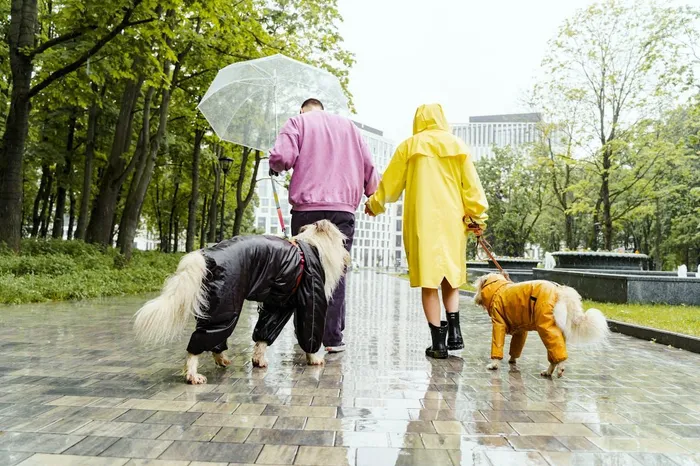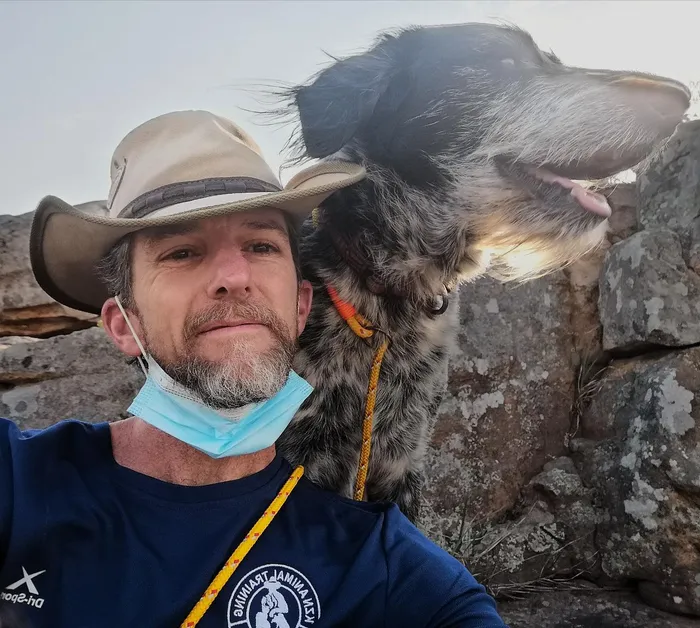Is your pet's evolution a 'paw-sitive' surprise? Find out what you’ve been missing

It's a dog's life for those that live with humans in cities, where gracing a doggie raincoat is part of the bargain of being man's best friend.
Image: Yaroslav Shuraev/pexels
Ever notice how your pet dog has got you taped, knows how to get its way with those uber-cute approaches and dreamy expressions?
Perhaps you've even pondered whether your faithful furbaby is taking you for a ride with its manipulative prompts, side-eyes and pitiful glances at the door, telling you it wants to go for a W.A.L.K?
Well, according to scientists, this is because canines are continuing to evolve to take on the ever-changing demands placed on them as man's best friend. They suggest that our canine companions are evolving in real-time right in front of our very eyes.
We all know that today's domesticated dogs are quite different from the wild wolves that first ventured into human settlements, where they were ultimately used to hunt, guard our homes and livestock, and even retrieve geese that their owners have shot down from the sky.
But today's modern household dogs have pivoted over time, acquiring new skills, intelligence and behaviours that make their existence - and that of their human - way more fun, rewarding and nurturing for all concerned.
Gone are the days when dogs slept outside, come rain or shine, where their role was primarily to guard the family. Today, many live pampered lives in close proximity to the entire family, where it has become increasingly important for everyone to be tuned into each other - humans and canines.
According to "The Brain Maze", a study by Sweden’s Linköping University has confirmed what dog lovers have long suspected about their pampered pooches - the bond between dogs and humans is insanely biological, and it is intensifying over time.
Their research shows many dogs in urban settings now recognise our human emotions, follow social cues they encounter, such as crossing robots safely by watching people walk when the light turns green. They also sense when they're needed to give comfort to a human when they're distressed.
They believe we may be seeing the rise of a new evolutionary path, one where intelligence is defining their future, and not just basic animal instincts.
The study says it all comes down to Oxytocin - the hormone responsible for love and trust, one which canines seem to be taking advantage of to seek help, show affection or make the most of whatever modern life throws at them.
According to the study, modern service dogs are leading the pack, because unlike their ancestors, which were bred for guarding, herding or retrieving game, these dogs are biologically and behaviourally wired to be social and calm, and display amazing empathy to humans.

Daniel Stewart with his 'best dog in the world', Heera.
Image: Supplied
Dogs being all cute by fetching your slippers or flopping on your lap, exposing their bellies - something their wolf-like ancestors would never have done back in the day - knowing full well they'll get fussed over, kissed and possibly given treats.
This advanced social intelligence includes their ability to understand human gestures, facial expressions and emotional cues - all made possible by the changed relationships between humans and their pets where they're often regarded as family, live inside and know how to live their best lives through their endearing mannerisms, quirks and tricks to get treats or attention.
This cognitive aspect appears to be driving the changing behaviours of dogs that we encounter each day.
Empathy and adaptability are the key traits that they've honed over time, and now the dog experts say our furry friends are entering a third wave of domestication.
One reader of "The Brain Maze" article supported the theory, saying: "And Chihuas are at the forefront of this transformation! Our Chi's adore us!! and spend their days assessing and managing our emotions with empathy and affection."
Another said her service dog "intuitively did the things I needed help with, like dragging me home when I get overstimulated in public (from autism)."
But is it the dogs evolving, or is it the other way around?
Globally recognised dog behaviourist, Daniel Stewart, who heads up KZN Animal Training, believes that a lot of these changes have come about by breeders selecting certain traits that are desirable to us.
"I do not believe that dogs are evolving to be agreeable, I believe that we create them through selective breeding to make them more appealing for us. It is not always the fluffy, cute-eyed dog that we find appealing. Some people enjoy having dogs with an aggressive nature for protection or to project their macho image.
"So, really speaking, is it the dog or is it human behaviour that is changing?"
Stewart believes that our human behaviours play a large role where what we do, primarily providing the social cues to our pets, which they respond to, thereby creating a symbiotic relationship.
"We are so far down the line from the domestication process, we have evolved and dogs have evolved so that they can be suitable to our environment because we consider ourselves as the apex predator, so it is more about adapt or die."